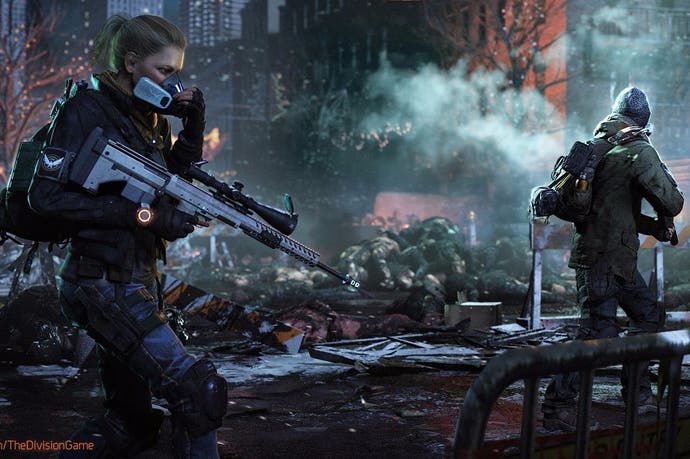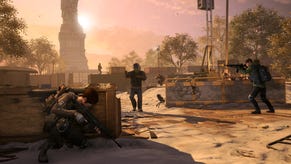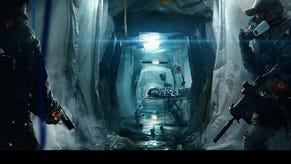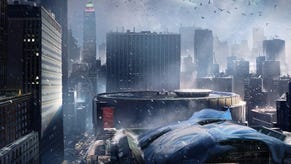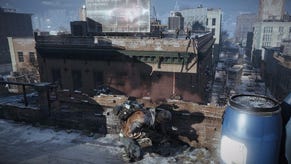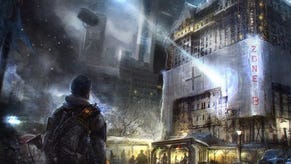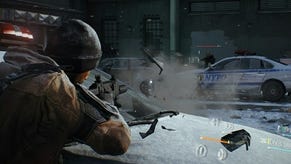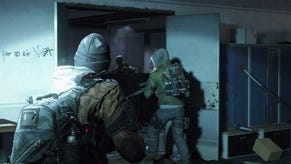The Division is scrappy, but utterly engrossing
First thoughts on Ubisoft's ambitious open world shooter.
Editor's note: This is an early impressions piece based on our first two days playing The Division. We're looking to have our full review up early next week.
A tourist can get more of a bead on a city in their first few hours than those who've lived there for years, Bill Burroughs once said while locked up in his Manhattan bunker on the Lower East Side. But after spending almost 10 hours in a virtual New York left deserted after a virus outbreak carried on dollar bills - a conceit that might have tickled old Bill - I'm not so sure. Your first couple of days with The Division are overwhelming, and deliciously so. This is an open world that feels expansive from the outset, and it's one that's dense with detail.
It's the city that emerges as the initial star of The Division: a generous slice of Manhattan that's full of distractions. Walk up from Chelsea to Hell's Kitchen and you'll find yourself getting lost in side-streets, tracking down lost agents, chancing across echoes of the disaster that play out in laser-pointillist reenactments, or finding an open door that takes you inside a beautifully realised apartment block, full of hauntingly accurate snapshots of life so suddenly abandoned.
As a place to visit, and as an exercise in disaster tourism, The Division is already a triumph - though elsewhere, it's a little harder to pin down, by virtue of how vast it seems. As a Ubisoft Game™, it drowns you from the outset in systems and waypoints, a noisy and inelegant UI doing little to help you make sense of it all. There's a base of operations to help back on its feet, crafting to indulge in, encounters to help the keep XP ticking merrily upwards and side-missions to tick off. The to-do list is initially suffocating, though having so many paths available to travel down is far from a problem, especially considering the hollowness of other like-minded games.

Unlike the unnecessary bloat of Watch Dogs, for example, here everything feels imbued with a greater sense of purpose - the purpose, of course, being the acquisition of better weapons and better gear to make the numbers that pop out of enemy's heads go higher and higher and higher. The compulsion loop The Division takes from loot-minded games such as Diablo and Borderlands is as strong here as it's ever been - my fingers are itching right now to get away from the keyboard and back to the controller - and they provide the perfect binding for the rich open world that Ubisoft and Swedish developer Massive have crafted.
The game's social side seems well implemented, too, and The Division is eager for you to share as much of its world as possible with other players. Matchmaking takes place either within the base of operations where you start, in the safehouses you slowly unlock, or at the start of the core missions that form the backbone of your progression, and it's swift and easy to find parties to help tackle the mobs The Division throws at you. It's perfectly possible to play solo, too: exploring the map in isolation to mop up side missions and a healthy portion of XP is a delight, while even the main missions can be tackled alone. But if you play alone, you'll miss out on the depth of The Division's combat.
What's perhaps most surprising about The Division, in its early hours at least, is how much of an emphasis there is on its role-playing game elements, and how there's a neat interplay between those systems that skilled squads can exploit. Perks and skills are all-important here, the latter available on MMO-ish cooldown timers and giving you access to a neat selection of tools. It's brilliantly flexible too, taking an open-armed approach that never locks off tech trees and instead invites you to enjoy all those wonderful tools. The Division will have those previously averse to the arcane nature of the MMORPG juggling buffs and debuffs as they struggle through an encounter before they know it.
It helps that underpinning all this is a third-person cover shooter that's more than merely competent. There's a satisfying weight when slamming your shoulder down into cover, and a pleasing intelligence in a snap-to cover system that never gets in your way - running from concrete pillar to car bonnet in the heat of battle is a fluid, seamless transition that helps sell the dynamism of The Division's combat. Even if you stripped away the MMORPG trappings, The Division would still stand as a perfectly satisfying third-person shooter.
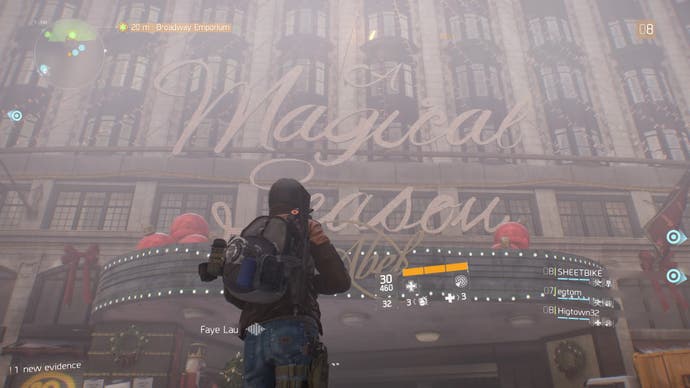
Not that it's without its own issues, of course. Some of these can be chalked up to the teething troubles endemic to the early days of grand connected adventures such as this, while others may prove more troublesome. The servers for this always online game have been commendably stable in the first few days, a few minor hiccoughs aside, while some of the issues are more comedic than anything else. Others are less amusing: I've had my gun disappear completely in the middle of a scrap on more than one occasion, an infuriating bug when you're left helpless during some of the more trying challenges.
Perhaps more worrying, however, is a lack of variety in enemy encounters that the early hours suggest could become a problem later on. The real-world backdrop of New York lends The Division one of the finest open-world playgrounds in recent years, but the starchy Tom Clancy fiction limits the game to cookie-cutter villains - a faceless collection of hoodlums in hoodies and their bullet-sponge bosses - and there are sizeable question marks over the enemy AI. I'm hoping that in later missions The Division does more than just give them stronger hats and longer lifebars, and that its firefights can soon live up to the grandiose backdrops they've been given.
That's all yet to come, and even after a significant chunk of time there's an exciting amount of The Division's map yet to discover. I'm still yet to fully brave the Dark Zone, the player-vs-player space where the long-game seems to lie. Right now, though, The Division is an extremely appealing place to visit. The next few days will tell if it's the kind of place you'd want to move to.
